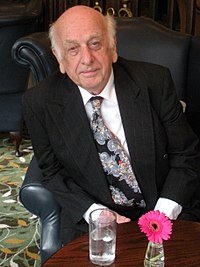Rarely has the cause of Assisted Dying seen so many shattering victories in so compressed a time.
Just this week, the New York Senate under the baton of Senator Hoylman-Sigal championed S138 to a 35-27 come from behind win, despite colorful fear-mongering and misstatements by opponents, most of whom were on the GOP side of the aisle. The accusations were predictable: the bill would endanger the margianlised, especially the disabled (despite statutory language prohibiting just that risk); the bill would eventually succumb to gravity and slip down a slope to resemble Canada's law (despite the fact that the NY law like every MAID law in the US only applies to terminally ill patients who can (and must) self adminster the medicine); the bill sanctions suicide, even though unlike suicide, patients using MAID don't so much want to die, as to abbreviate end of life suffering).
However, it is worth noting the S138 makes two major improvements on prior legislation: it completely eliminates the obsolete and bureacratic waiting period between the time of the oral request and the subsequent written request. Oregon in 1997 had imposed an artifical 15 day languisihing cool-off fortnight, as if people who were facing a fatal disease might be acting isouciatnly or impetuously. Over 30 years, we have seen the complete illogic of any waiting period. New Mexico in 2021 had lowered the period to 48 hours, and New York has finally administed the coup de grace to this anomaly. Additionally, New York has taken counsel from Oregon and Vermont (and a pending consitutional challenge in Federal Appellate court in New Jersey) to do away with any residency requirement, consistenty with the US Consitution's Privileges and Immuniities Clause and the Equal Protection guratnee of the 14th Amendment.
The NY Senate approval followed an equally emotional debate in the Assembly which passed the bill on April 29 81-67. The bill now goes to Governor Kathy Hochul, a Democrat and New York's first female governor who is running for re-election in 2026. She has not indicated publicly whether she will sign or veto. Opponents will be lobbying her ferociously, a suggestion made both by NY Archbishop Timothy Dolan and the Wall St Journal editorial page.
The victory in NY follows by less than a month passage in Delaware of the Ron Silverios/Heather Block End of Life Options Act on May 20, 2025 upon Governor Matt Meyer's signature. THe Delaware House voted its approval in March 21-17 followed by the Senate 11-8. It is worth remembering that two years earlier the Delaware House and Senate had passed the same bill, only to see lame duck Governror Carney veto the measure in September 2024. Delaware thus became the 12th US jurisdiction legalising MAID.
In an equally momentous vote, a bipartisan coalition of libertairan Republicans and fundamental rights Democrats defeated the umpteenth challenge to the 2009 Baxter v Montana Supreme Court decision on April 9, 2025 by a vote of 42-58. The measure had ominously passed in the State House, but a number of Republicans did not want to upset an established and popular end of life option to placate religious fundamentalists. The victory was critical as Montana remains the only "red" state allowing MAID.
Earlier this year, on May 13 the Scottish Parliament passed the first of three mandatory readings on a bill legalising assited dying, 70-56. This was the third time an Assisted Dying bill had been vote upon in Scotland.
On May 27, the French Parliament passed a bill legalising assisted dying by 305-199. The proposal applies to French adults suffering form a serious and incurable, life threatening, advanced or terminal illness which is irreversible, leading to constant, unbearable physical or psychological suffering. It must be noted that the bill must now go to the more conservative Senate, and then back to the House before it would become law.
In the Anglo-Normand Island of Jersey, Assisted Dying legislation was approved 32-14 on May 22, 2024 for those suffering from a terminal illness causing unbearable suffeirng.
Additionally, on Feb 11, 2025, Tuscany beame the first Italian region to approve assisted dying, despite the heavy opposition of the Roman Catholic Church. This followed a 2019 ruling by the Italian Constitutional Court that assisted dying was legal for patients suffering from an irreversible pathology causing intolerable pain and psychological sufffering provided the patient has legal capacity and is acting without coercion or undue unfluence. On May 17, Daniele Pieroni, suffering from Parkinson's disease, became the first beneficiary of Tuscany's new law.
Most recently, Maine's State House voted 79-62 to approve LD613, a bill to give doctors authority to reduce the waiting period for dying patients from 15 to 5 days. This bill looked dead on a number of occasions but the persistence of Maine's advocates pulled this one through. It is now before the governor for enactment.
2025 is only half over, but more advancements have been made in MAID and Assisted Dying in the US and world-wide than in any other year. We seem to be approachig the tipping point where Assisted Dying becomes recognised not just as experimental or controversial, but a matter of public decency and universal approval.


